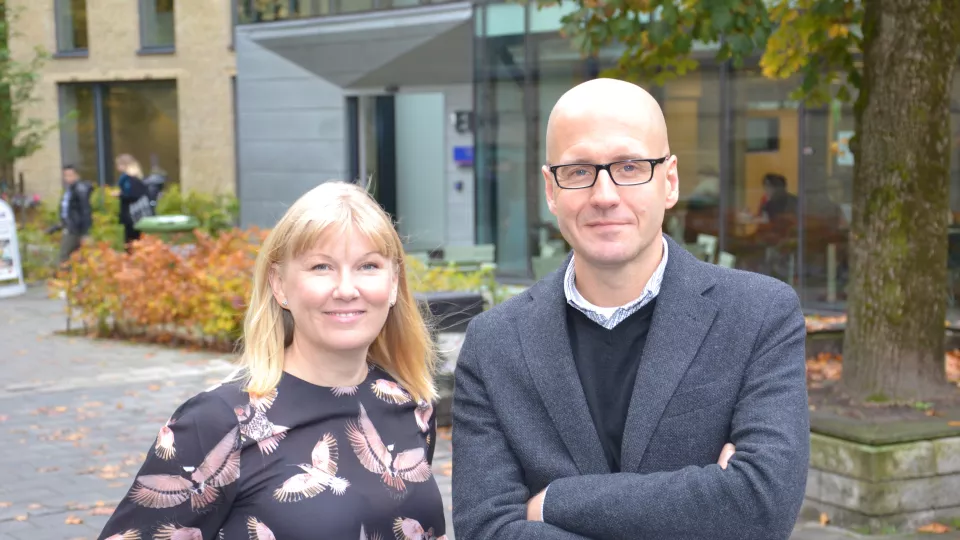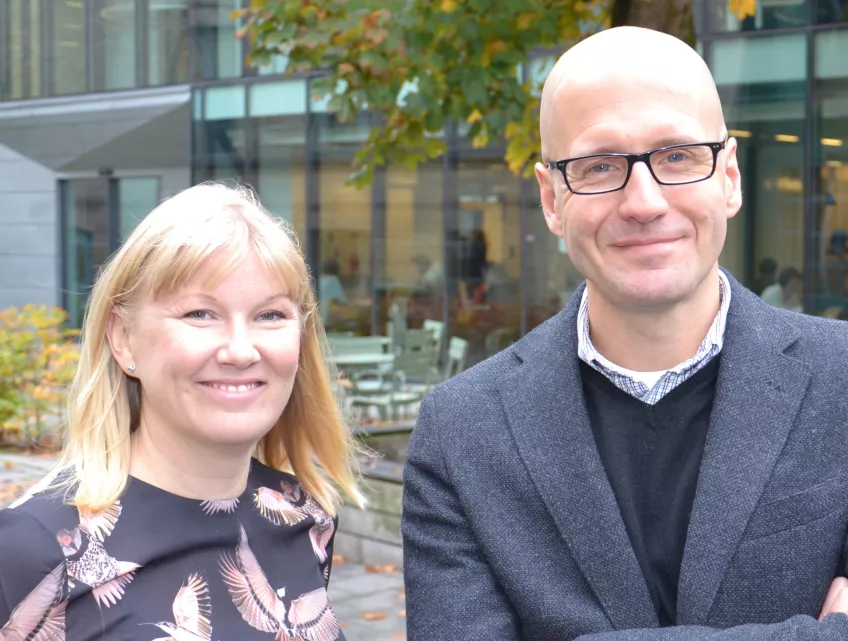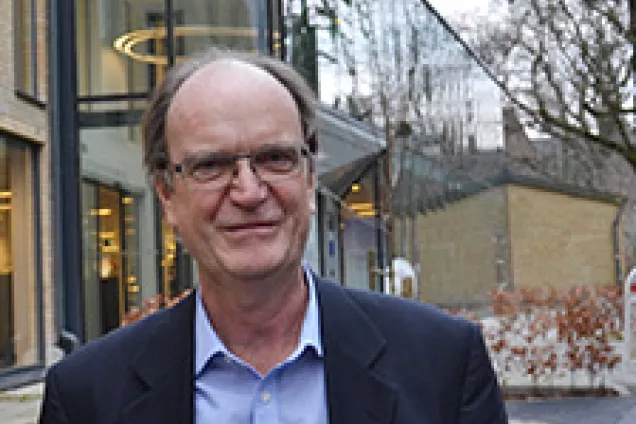You are taking over the leadership of a department which has grown a lot over the past ten years. What are the greatest challenges in a growing organisation?
Björn Badersten: “The funding agreement targets for education are virtually fixed, with only marginal changes. The expansion has mainly taken place on the research side, above all in externally funded research. This is completely due to our hard-working researchers and teaching staff, and their successes. However, the basic idea is to unite the two assignments, teaching and research, so that they become mutually enriching.”
Lisa Strömbom: “We will continue to foster a good working climate in which researchers and teaching staff, together with administrators, contribute to a strong and inspiring environment. From a purely material point of view, there is currently a limit to how much we can grow – our premises here in the Eden building are crowded as they are.”
Björn: “Yes, an expansion must not be achieved at the cost of the work environment, whether physical or psychosocial. We have to safeguard the cohesion and sense of community at the department, while affirming the increased diversity and pluralism that comes with the organisation’s growth. Pluralism is enriching in itself and, I believe, an important explanation for the department’s success.”
Lisa: “It is important to safeguard the department’s breadth. Research projects that grow with external funding are necessary for the department’s survival. However, fields that do not correspond to the prevailing trends among funding bodies must also be given opportunities. One way of doing this is to direct vacancy announcements within the marginalised fields so as to attract teaching staff who are also competent researchers, thereby reinforcing the department’s breadth.”
Björn: “Another challenge we are facing is to safeguard our collegial governance and counter external pressure for more vertical management. A successful university department consists of many independent individuals who, in collegial cooperation, administrate an important legacy of autonomy and academic freedom. However, with this autonomy and freedom come responsibility and a need for judgement. A university department is basically a public authority governed by certain regulations and norms, and we all have to act as judicious and reflective civil servants in relation to this.”
Lisa: “I agree that collegial forms of governance are necessary for a free and independent university, and can function as shock-absorbers against short-term trends. Lund University has so far responded to this development in a good way and safeguarded collegial governance significantly more than most other higher education institutions.”
Björn: “Another challenge is to retain our competent administrators and offer them opportunities for development. There is not much in the way of administrative career paths at the University, as a result of the organisation being so flat, among other things.”
Lisa: “We are lucky to have expert administrators who have worked with us for many years. We need to continuously invest in making their jobs attractive and offering potential for development, as well as opportunities for further professional training.”
You have mentioned the importance of the interaction between education and research; how would the perfect interaction play out?
Björn: “There are many different ways of combining education and research, but a fundamental starting point is to have teaching staff who conduct research and researchers who teach. This means that we strive to give as many people as possible room for research, but also to ensure that people with abundant research funding regularly take part in teaching. I believe that an excessively one-sided focus on one or the other is detrimental both to the department and to the individual.”
Lisa: “The interplay between them is good for collegiality, for the quality of education and for research. The ideal is a balance – a give and take between research and education which is mutually enriching. The director of studies has an important role in ensuring that course development is dynamic and based on the broad research expertise that we have. Together with skilled teaching staff who are active in research, it creates the conditions for a very competitive education.”
What are the strengths that you will bring to your new assignments?
Björn: “Oh dear, that’s a tough question. It is one that others are probably better qualified to answer. But I can say what I think is important. To listen, to generate support and to be impartial, i.e. not to reward specific interests but to try to be fair and safeguard the common good. And to give feedback.”
Lisa: “We both have a strong commitment to this workplace, which is a prerequisite. I want to get involved in ensuring that our doctoral students thrive in the workplace and have good conditions for writing effective theses. And I think that both Björn and I will benefit from the experience we have acquired, Björn as assistant head of department and I as the director of Peace and Conflict Studies. We are aware of both the challenges and the opportunities the department is facing.”
What are you most looking forward to?
Lisa Strömbom: I am looking forward to working with our doctoral students.
Björn Badersten: I am looking forward to seeing the big picture, and trying to develop it.
NEXT WEEK: Interview with Head of Department for nine years, Tomas Bergström.




